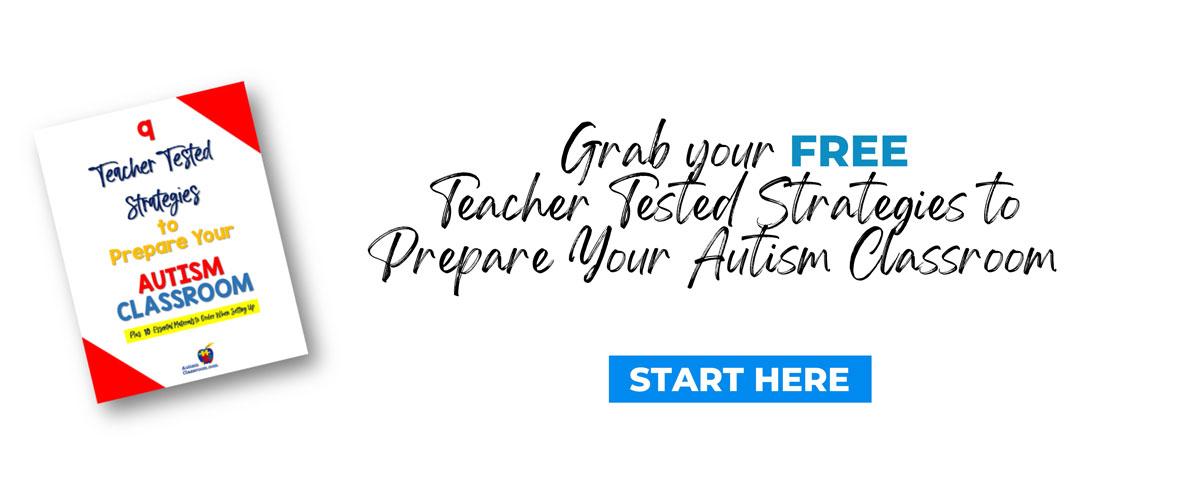
One of the best and worst aspects of being a teacher is that the job changes from day to day and year to year, depending on the individual topics we are teaching. With different backgrounds, different circumstances, and different personalities, your classroom one year can be completely different the next.
Because of the variability in experiences while teaching, teachers need resources that understand these differences and provide support on how to navigate unique situations. This article will cover some different types of websites (other than teaching websites) that you may want to have in your toolbox if you teach students with autism.
A Look at Website Types You May Need
1. Sites for Printouts and Posters
Educators who teach autistic students must be aware of the different learning styles and inputs of information that autistic students can find helpful. Letter posters, worksheets, tracing worksheets, and more can be helpful tools for your autistic students to interact with information in different ways. Websites that feature alternative learning style posters and printouts are a helpful resource for teachers who teach students with autism. Consider websites like this one with posters for for classrooms or for larger resources consider websites like Teachers Pay Teachers.
On Teachers Pay Teachers, you can curate your searches to find printouts that are specifically made with students with autism in mind. These printouts are made by other educators, which helps to support fellow educators who teach students with autism.
2. Sites with Information on Autism
As educators, we need to continue to inform ourselves about the nuances of conditions that may affect our students. For autism, the understanding of the disorder is continuously changing, which means seeking out information from the established authorities is important. Resources like the National Institute of Mental Health are places where you can get comprehensive information on what autism spectrum disorder is and how it can impact a student’s experience in school.
Another great resource is the Centers for Disease Control resource for educators of students with autism, found here. This guide shows developmental milestones, facts, and lesson plans for educators. Additionally, you can find information on screening and diagnostics, additional services, and data and statistics on autism spectrum disorder. The National Professional Development Center on Autism Spectrum Disorder (NPDC) is great and provides evidence based practices for autism for free through their AFIRM modules!
3. Sites with Career Opportunities
For teachers who specialize in teaching students with autism, it can be helpful to access websites that focus directly on opportunities for teachers experienced with autistic students. As well, having access to resources with information regarding how to become a teacher who specializes in teaching those with autism can be helpful. Websites like Learn.org are great for information regarding the next steps for continuing education and certification. Other websites for searching for career opportunities include searching on Indeed and LinkedIn.
4. Sites for Supplies Options
Seeking out supplies and other curricula that are specifically designed for students with autism can be extremely helpful. When looking for supplies or curriculum options, you can view independent teacher blogs or seek out curriculum resources that come from vendors.
Place for supplies include Different Roads to Learning, Southpaw Enterprises, and Lakeshore Learning. However, the list could go on and on. You just need to make sure your school system has a relationship with the vendor. You can contact the school office secretary or the purchasing office to find this out. Sometimes adding and approving a vendor takes time so if you plan to order form them, be sure to star asking about the vendor status about 3 months before.
5. Sites to Help with Support to Students
For the individual support needs that students with autism have, such as communication, social skills, and behavior needs, educators can seek out resources to help them develop skills and understanding. Web pages and articles like the ones here at Autism Classroom can be extremely helpful if you are in need of some step by step advice in behaviors or social skills. We offer courses to guide teachers on managing students who are known to elope, providing support before behaviors occur, and how to build skills in students with autism. Keep us in your back pocket!
6. Sites for Support and Community
Educators, especially those who serve high-risk and special needs students, are in need of places to seek support from one another. There is power in community, and the phrase “it takes a village” definitely applies to the principle of educating today’s youth. Seeing that other educators face similar problems to you can be extremely validating, and getting social time with teachers outside of your work environment is invaluable.
Look for places to connect with one another. Some communities have forum-style topics where you can join conversations about unique issues and problems that you and other teachers may have. Many communities are moderated with real people giving information and adding advice so you can easily learn about the other teachers you are connecting with to try to form lasting relationships with other educators. But be sure to look for a community that is knowledgeable supportive and positive.
As you can see, many options are available for teachers who teach students with autism. Whether you are looking for classroom resources or more information on professional development, exploring different types of websites and having the information ready for when you need it, is going to be helpful to your ability to serve your students’ unique needs.


